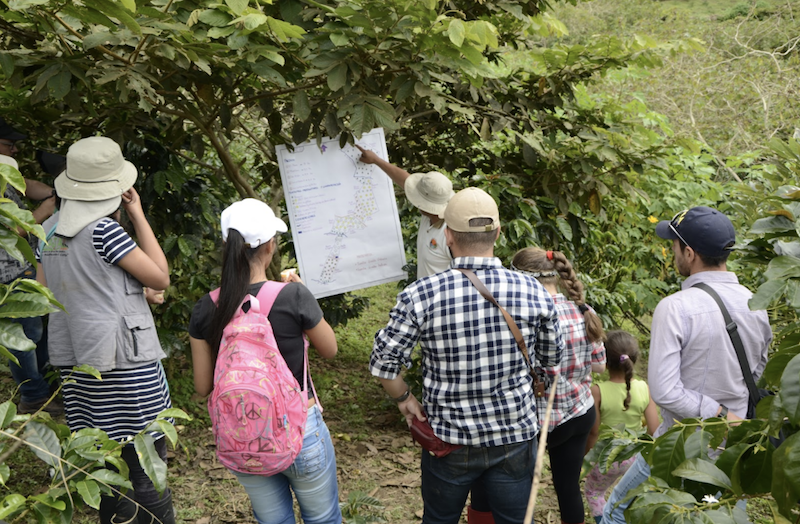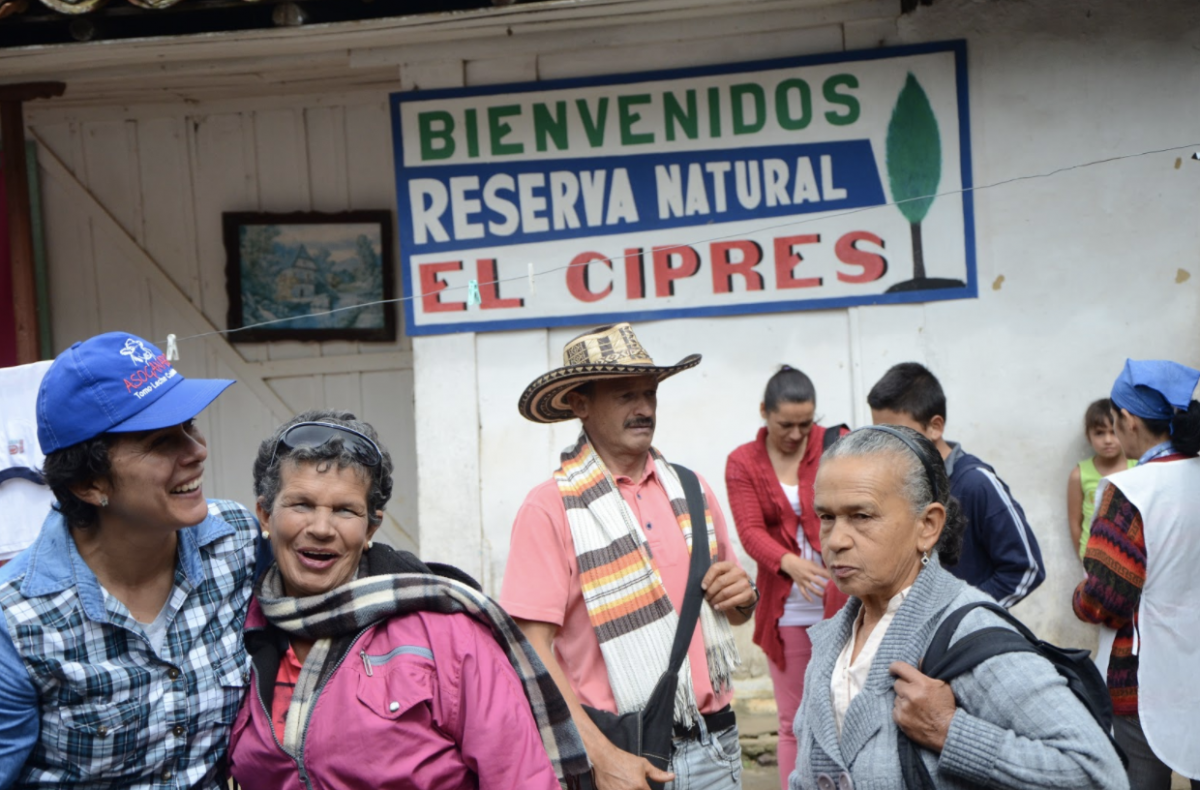
Eudaly says the problems began more than 26 years ago. Along with her family and more than 20 neighbouring families, they began to notice the water was scarce. If one of them collected water from the creek, the one below would have nothing to drink; as a result, they started walking long distances with a turbine to obtain water. These difficulties soon caused fights between people.
A Collaborative Solution
It was a complicated situation. The easy way of ‘solving it’ was to sell their land. However, no one would pay a good price for land with no water. As a result, they decided to take the only path left: to work as a team, find the source of the problem, and try to find a solution together.
They mapped the region, went back on their tracks, and realized that little by little, the trees of the forest located by the river basin had been cut down. This was first to sell the wood, then to grow subsistence crops, and finally to produce commercial crops. Moreover, crops had been planted very close to the creek shore.
A Generational Effort
Working together allowed the families communities to become aware of their own story and territory. According to Eudaly, who today works as a teacher, she is the fourth generation that has worked to recover and maintain the forest and water.
In this process, and with the help of the Center of Investigation for Sustainable Agriculture and Livestock Production Systems, the community established the Environmental, Agricultural and Livestock Corporation – CAMPAB. Every family voluntarily granted a piece of its own land to create private conservation areas.
Peer-to-peer Learning
Additionally, they started peer-to-peer workshops to train other families on how to take care of the landscape and its resources. By doing this, they raised enough money to buy tree hectares. This, combined with land donated by a local landowner, became a natural reserve to protect the river basin.

Today, a total of 80 families enjoy the water that Eudaly and her neighbors recovered. Further, the Valle del Cauca Autonomous Corporation (a local institution that manages natural resources in the department) entitled them to manage their territory’s water. This means no external entity can decide what to do or how to manage the water they recovered with so much effort.
Today, this Dovio community make sure that every family knows the story and understands the importance of taking care of the water and the trees they planted more than ten years ago.
The Importance of Knowledge Transfer
This is why Solidaridad, the Sustainable Trade Platform and the Global Coffee Platform decided to join and contribute to this knowledge transfer process between neighbours. This is conducted through a CAMPAB’s Field Day, integrating good coffee agricultural practices to their environmental efforts. Solidaridad is also supporting the community to develop a rainwater harvesting system to grow fish, water plants and animals, and continue to take care of their land.
Further, Solidaridad is planning more peer-to-peer workshops, where farmers with whom Solidaridad works in other areas of the country can participate. This is so that Dovio families can share their experience and inspire other with their spirit of union, ownership and entrepreneurship.
Watch a video of the Field Day below:
